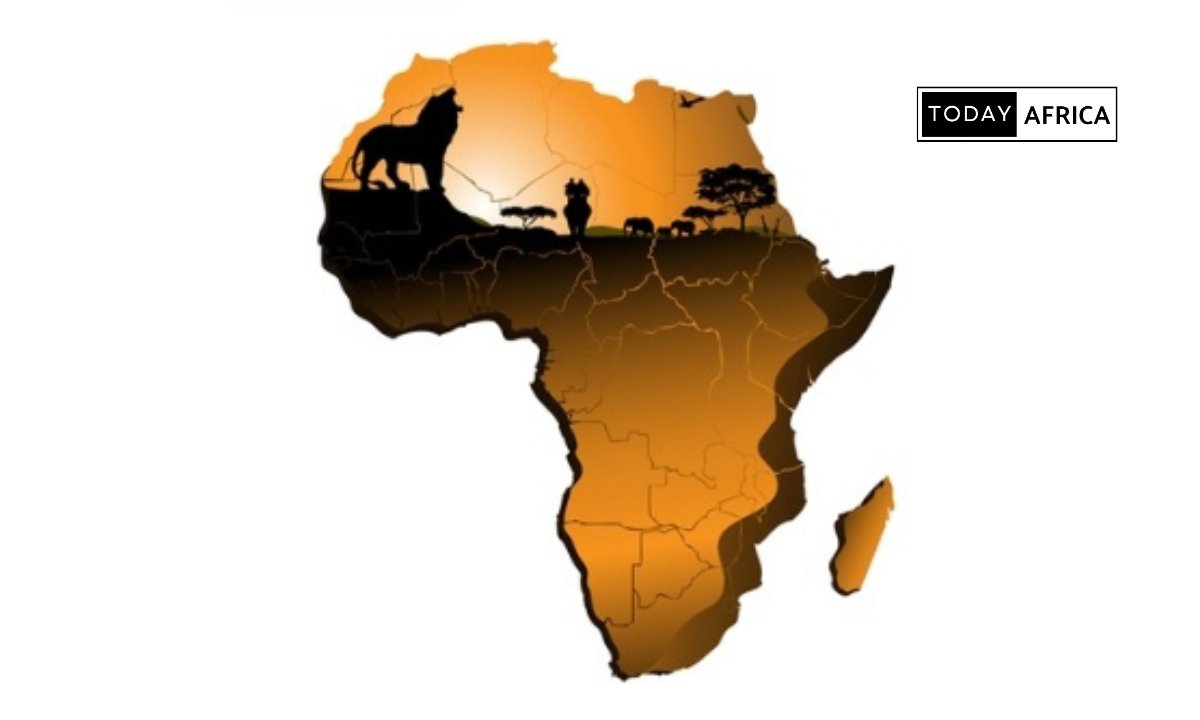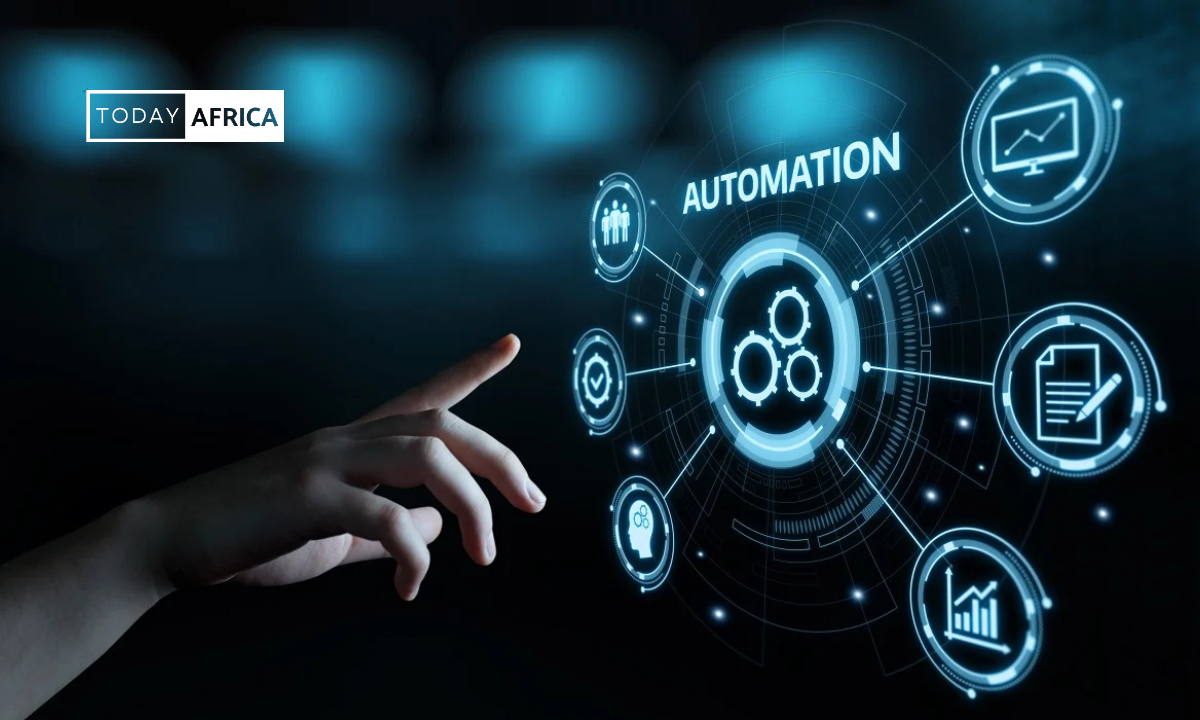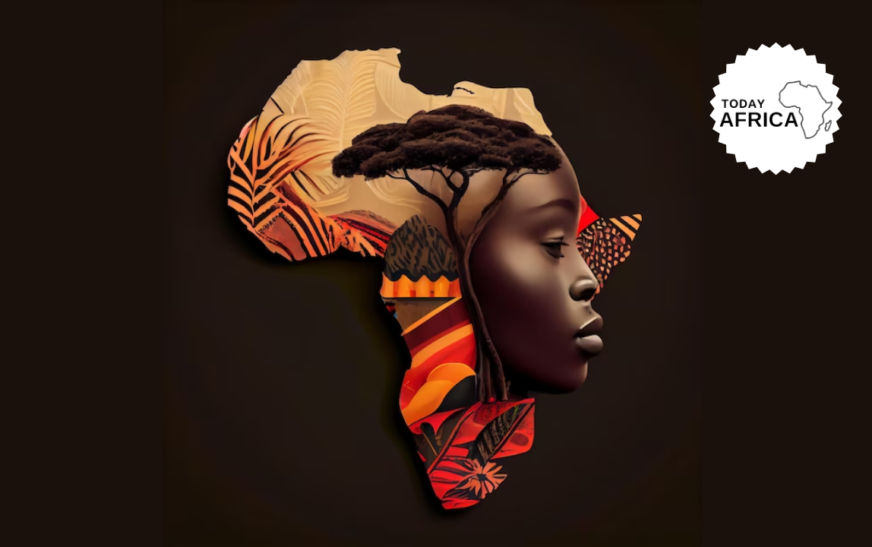Imagine a bee farmer in Nigeria using a smartphone app powered by machine learning to know the state of their beehives, or a community health worker in Kenya consulting an AI-powered tool to support maternal care services.
These scenarios aren’t science fiction – they’re happening today.
Across the continent, entrepreneurs are building AI-driven solutions tailored to local needs, from precision farming to telemedicine, finance, and public services.
In this article, we’ll discuss AI in Africa and how African startups are adopting it to address real-world challenges.
The Rise of AI in Africa
Over the past few years, Africa’s AI ecosystem has grown rapidly. Although African startups currently account for only about 2.5% of the global AI market, the numbers are rising fast.
Currently, the African AI market was valued at roughly $4.5 billion, and analysts project it will reach over $16.5 billion by 2030.
Venture funding has followed suit: after a brief slowdown in 2023-2024, investment rebounded strongly.
In the first half of 2025, African tech startup funding surged 78% year-over-year, with AI companies among the biggest beneficiaries.
Open-source AI tools (like new large language models) have lowered infrastructure costs, making it easier for early-stage startups to prototype and scale solutions in areas like logistics, healthcare, and finance.
At the same time, governments and institutions are making AI a priority. For example, Egypt adopted a national AI strategy in 2021 and recently updated it for 2025–2030, aiming to support over 250 AI firms by 2030.
Kenya launched a new National AI Strategy (2025–2030) positioning itself as an East African AI hub.
The African Union has also declared AI a continental priority and published a strategy in 2024 to develop homegrown AI capacity.
High-level meetings in Addis Ababa and other capitals have called for investment in data centers, cross-border connectivity, and ethical AI policies that leverage Africa’s unique data and languages.
Despite this momentum, investment remains uneven. A recent AU report notes that 83% of AI startup funding in early 2025 went to just four countries: Kenya, Nigeria, South Africa, and Egypt.
These markets have the largest tech ecosystems and digital infrastructure.
The challenge – and opportunity – is to spread AI capabilities more evenly across the continent, empowering innovators from Ghana to Ethiopia to South Africa.
Funding and market growth
Africa’s AI market trajectory is often compared to its mobile revolution. Just as mobile phones leapfrogged landlines, many African countries can adopt AI at scale thanks to widespread smartphone use and data connectivity.
Although internet penetration in Sub-Saharan Africa is still below the global average, it is growing rapidly (over 500 million mobile subscribers by 2022, or about 43% of people).
This mobile-first reality means AI tools delivered via apps can reach rural communities and informal sectors.
Industry reports underscore the sector’s promise. A Mastercard study projects that Africa’s AI market will grow from $4.5B in 2025 to $16.5B by 2030, driven by use cases in agriculture, healthcare, education, energy, and finance.
Remarkably, the World Bank estimates that by 2035, AI could double GDP growth in African countries.
In other words, responsible AI adoption could meaningfully lift productivity and economic output across the continent.
This potential is attracting global investors: in 2023, African countries drew hundreds of millions in AI-focused venture capital (e.g., South Africa alone raised $610M that year).
National strategies and ecosystem
Several African governments have launched AI initiatives to nurture local talent and startups. Egypt’s AI strategy (2021) was among the first, and now aims to generate hundreds of AI companies by 2030.
In Kenya, President Ruto’s administration released its AI roadmap to leverage the “Silicon Savannah” for research and commercialization.
Nigeria’s government is also planning AI policies to support innovation.
Academic and tech institutions are rising too: South Africa’s Artificial Intelligence Institute offers world-class training, and many universities across Africa now offer data science and machine learning programs.
Nonprofits and industry bodies also help. The Deep Learning Indaba and Data Science Nigeria, for instance, run workshops to build AI skills.
Incubators and accelerators across Africa now have AI tracks. UNESCO and the African Center for Economic Transformation have highlighted AI as key to development.

How Startups are Leveraging Artificial Intelligence
1. AI in agriculture
Agriculture remains Africa’s economic backbone, employing two-thirds of the workforce. AI-driven startups are helping farmers tackle crop diseases, low yields, and climate risk.
For example, several projects use machine learning and smartphone apps to diagnose plant diseases.
In Nigeria, IITA (a pan-African research group) launched a Cassava Disease Surveillance platform and the PlantVillage Nuru app. These tools let a farmer photograph cassava leaves and instantly identify infections like brown streak or mosaic virus.
Rapid detection means farmers can treat diseases before they spread, which leads to significantly higher yields and fewer crop losses.
Beyond diagnostics, AI is optimizing farm logistics. Hello Tractor, a Nigerian startup dubbed “Uber for tractors,” uses AI to match farmers with available tractor owners in real time. Smallholders who can’t afford machinery can rent access when needed, improving land preparation and productivity.
Meanwhile, supply-chain platforms like Leta (Kenya) are using AI for route optimization in transport and logistics, helping get produce to market more efficiently and reducing waste.
Startups are also deploying drones and sensors: for instance, companies can now fly drones over fields to map soil moisture or plant health, feeding data into AI models that recommend precise irrigation or fertilization.
Overall, AI in agriculture is about making every input count. By using satellite imagery, weather data, and IoT sensors, AI systems can forecast droughts, predict pests, and suggest planting schedules.
Investors see that AI-enhanced farming can reduce hunger – currently 282 million Africans face chronic hunger – and build sustainable livelihoods.
See Also: Why Agribusiness is Africa’s Next Big Goldmine
2. AI in healthcare
Africa has some of the world’s lowest doctor-to-patient ratios, yet it is one of the most mobile-connected regions. Startups are leveraging AI to bridge this gap by bringing healthcare to people.
Telemedicine apps powered by AI are a common example. Côte d’Ivoire’s Zencey (founded 2019) offers online video consultations via its Android app. It uses AI to streamline triage and reduce medical errors, enabling patients in remote areas to consult accredited doctors on demand.
Similarly, Babyl in Rwanda partners with the national insurance to provide symptom-checking chatbots and virtual visits.
In East Africa, Eden Care (Rwanda) is an AI-driven health insurance startup that plans free telemedicine for its members, cutting costs and expanding access.
By analyzing patient data and automating paperwork, Eden Care makes insurance more affordable and easier to use.
AI is also powering diagnostics and predictive care. South African startup Cortico Health uses ML to read medical images, and Nigerian genomics firm 54gene applied AI on genetic data for precision medicine (e.g., cancer research).
In maternal and child health, Kenyan NGO Jacaranda Health deployed an AI chatbot, UlizaLlama, that provides pregnancy and postpartum advice in five local languages.
This kind of tool helps expectant mothers in their own dialects, strengthening education and adherence to care plans.
Another example is mDoc (Nigeria), which uses AI-driven coaching via apps to help chronic disease patients manage conditions like diabetes.
In diagnostics, some African teams train AI models locally. For example, Senegal’s Kera Health digitizes medical records and payments with AI, improving hospital efficiency.
During COVID-19, multiple startups in Egypt and Kenya used ML to analyze X-rays and CT scans for faster diagnosis.
These tools also integrate satellite or demographic data to predict disease outbreaks. Indeed, a Brookings study notes that African startups are deploying AI to “monitor maternal health, produce diagnostic imaging, and develop AI-powered virtual clinic appointments”.
3. AI in finance & commerce
Financial inclusion has been one of the biggest success stories of African tech, and AI is pushing it further.
Banks and fintechs across the continent use AI to enhance security, improve lending, and streamline services.
For instance, fraud is a perennial problem in African banking. Machine learning algorithms can spot unusual transactions in real time.
Nigeria’s Access Bank deployed AI-driven fraud detection that flags suspicious payments within milliseconds, cutting false alarms by about 30% compared to older systems.
South Africa’s Standard Bank is exploring blockchain+AI to harden transaction ledgers against cyber attacks. These tools protect customers and build trust in digital finance.
On lending, AI is expanding credit to those without formal histories. Traditional credit scores often shut out people with no bank records.
Now lenders use alternative data – like mobile money usage, phone data or utility bills – to assess creditworthiness.
Kenya’s mobile-money giant M-Pesa teamed up with the startup Branch to analyze users’ transaction and smartphone data. By running those patterns through ML, they can offer microloans to entrepreneurs who would otherwise be unbanked.
According to one study, AI-powered credit scoring in Africa reduced loan default rates by 25% over conventional methods.
Other fintechs like Nigeria’s Kudi.ai and Egypt’s Float also use AI chatbots for microloans and payments.
This push not only boosts financial inclusion but also fuels small business growth in regions with high mobile use.
AI is also automating the back end of banking. Robotic Process Automation (RPA) – a form of AI – handles routine tasks like document checks and compliance.
Ghana’s Ecobank reported a 60% reduction in processing time for loans after implementing AI-powered RPA in their systems. Customer service is getting an upgrade too.
Egypt’s Banque Misr uses AI chatbots trained in Arabic and local dialects; these 24/7 virtual assistants resolve inquiries and free up human tellers.
With natural language processing, bots can converse in the customer’s language, an essential feature in Africa’s diverse linguistic landscape.
Beyond banking, AI is reshaping commerce and logistics. In retail and supply chain, startups use ML for inventory and delivery.
For example, online grocers and parcel services are experimenting with AI-driven route planning to reduce delivery costs.
A Kenyan startup, Leta, raised venture funding to apply AI for route optimization in shipping.
Meanwhile, embedded finance platforms are emerging: companies like Jumia and OPay use AI on transaction data to offer credit and insurance at the point of sale.
AI is making African commerce smarter and safer – whether it’s predicting fraud, extending microcredit to the shopkeeper, or optimizing a goods delivery route.
Read Also: Top 10 Fastest-Growing Industries for African Entrepreneurs
4. AI for society and governance
Artificial intelligence is not just a tool for business – it’s also being applied to broader social challenges and public services. African startups and governments are beginning to use AI in education, governance, and civic tech.
In education, adaptive learning platforms tailor instruction to each student. Nigeria’s Rising Academies uses AI algorithms to personalize lesson plans in low-cost schools, helping teachers identify where each child needs help.
This kind of edtech can raise literacy and math scores where schools are under-resourced. Similarly, vocational training apps are using AI tutors to upskill youth in coding, languages, and trades via mobiles.
Government services are also getting an AI makeover.
In Togo, the government used AI to refine its Novissi cash transfer program, which provides social stipends to the poorest families.
By analyzing demographic and mobile data, the AI model identified 57,000 recipients for the second phase of Novissi without manual surveys.
This precision targeting saved time and funds, ensuring aid reached those who needed it most. In Zambia, an AI-powered fact-checking platform called iVerify was piloted during elections.
It automatically scans news articles and social media for hate speech and misinformation, helping voters get cleaner information. These civic tech initiatives show how AI can improve governance and transparency.
Fintech and edtech converge in social impact too.
For example, Mastercard’s research highlights Nigeria as a leader in AI-driven inclusion: the country’s startups are “using AI to personalize learning (Rising Academies) and deliver microfinance via Kudi.ai”.
In Senegal, Kera Health is digitizing medical records and payments with AI to speed up clinic workflow, indirectly supporting public health outcomes.
Even energy is in play: Zimbabwe’s NeedEnergy uses machine learning to optimize power generation and grid management, tackling frequent outages.
Across Africa, these “AI for good” projects are still emerging, but they hold promise for the SDGs (Sustainable Development Goals).
A Brookings review notes that AI could enable 67 targets related to poverty, education, health, and energy. In practice, many initiatives remain pilot projects.
The gaps are real – uneven data, lack of skills, and privacy concerns – but the momentum is growing. International organizations now emphasize that AI should “narrow the digital divide, not widen it”.
The push is on for open data, ethics guidelines, and partnerships with tech giants (like Google or Microsoft) to scale African solutions with global support.
Challenges and Opportunities Ahead
Infrastructure gaps
AI startups in Africa struggle with inadequate infrastructure. Reliable electricity and high-speed internet remain inconsistent in many regions, making it difficult to train and deploy AI models at scale. Without improved connectivity, rural areas risk being excluded from AI-driven innovations.
Shortage of AI talent
Only about 3% of the global AI talent pool is in Africa. While initiatives like Data Science Nigeria and the Deep Learning Indaba are building capacity, brain drain remains a problem as skilled engineers often move abroad. Expanding local AI training programs and retaining talent are critical.
Data availability and quality
AI systems thrive on high-quality, large-scale datasets, yet much of Africa’s data is fragmented, outdated, or inaccessible. Health records, financial data, and local language datasets are especially limited. Without more open and standardized datasets, African startups face difficulties training effective AI models.
Ethical and regulatory concerns
AI adoption raises questions around bias, privacy, and transparency. For example, health apps handling sensitive patient data may lack clear protections. Many African countries are still drafting data protection laws and AI ethics frameworks. Building trust requires strong governance to ensure AI benefits society fairly.
Read Also: How Mobile Money is Changing Business Across Africa
Growing opportunities ahead
Despite these challenges, Africa has a young, mobile-first population, widespread use of mobile money, and governments prioritizing AI strategies.
This year alone, AI startups across Nigeria, Kenya, Egypt, and Senegal raised over $40 million, and global players like Meta acquired African AI firms.
With projections of 230 million digital economy jobs by 2030, Africa’s AI future is promising – provided investment continues in infrastructure, skills, and ethical governance.
Conclusion
Artificial intelligence is no longer a distant frontier for Africa—it’s here, reshaping how farmers grow food, how patients access healthcare, and how entrepreneurs secure funding.
Startups across the continent are proving that with creativity, resilience, and the right support, AI can be harnessed to solve Africa’s most pressing challenges while unlocking new opportunities for growth.
The potential is immense: from precision agriculture that reduces hunger, to AI-powered diagnostics that save lives, to fintech tools that expand financial inclusion.
But to fully realize this promise, Africa must overcome barriers like infrastructure gaps, data scarcity, and a shortage of skilled talent. That means stronger investment in education, digital infrastructure, and ethical governance frameworks that ensure AI benefits everyone.
The promise of AI in Africa is immense, but it requires everyone’s engagement.
Leave a comment and follow us on social media for more tips:
- Facebook: Today Africa
- Instagram: Today Africa
- Twitter: Today Africa
- LinkedIn: Today Africa
- YouTube: Today Africa Studio
















